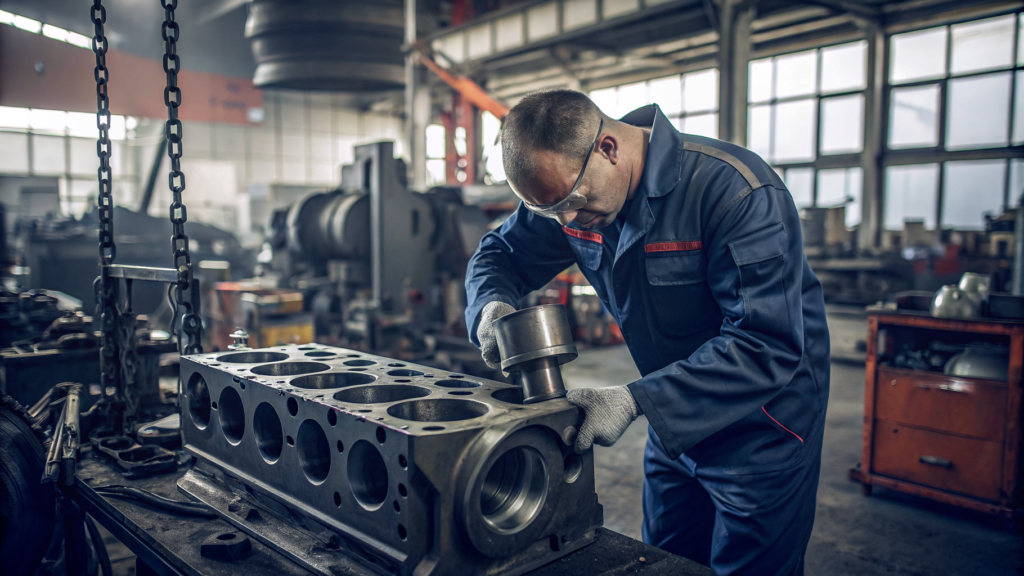
Cylinder honing is a critical step in engine maintenance and rebuilding, especially for heavy equipment used in industries such as construction, mining, agriculture, and marine. It involves refining the inner surface of engine cylinders to achieve the ideal texture for proper piston ring seating. This improves compression, reduces oil consumption, and extends the life of the engine.
The main goal of honing is to improve the surface finish of the cylinder walls. A properly honed cylinder has a crosshatch pattern that helps piston rings seat correctly and maintain a tight seal. This seal is vital for optimal compression and combustion efficiency and prevents oil from leaking into the combustion chamber.
Honing also:
Without honing, even brand-new piston rings might fail to seal properly, leading to performance issues and increased wear.
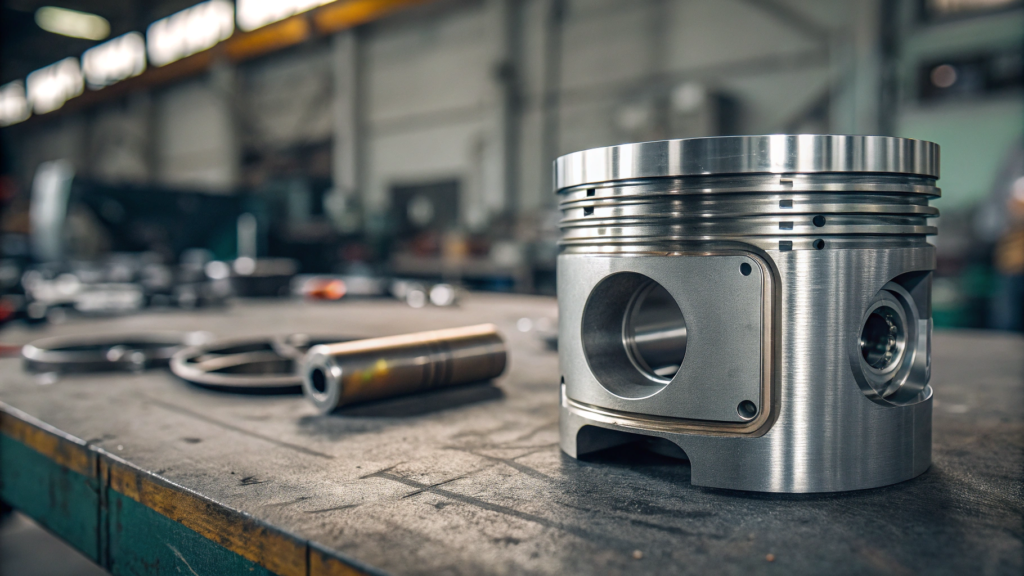
Cylinder honing is generally performed during:
If you’re seeing any of these signs in your engine’s performance, honing may be necessary to restore it to optimal working condition.
Yes. Honing and sharpening are entirely different processes. Sharpening involves shaping or refining cutting tools, whereas honing is about smoothing cylinder walls to ensure tight piston ring sealing.
While sharpening is relevant for blades or drills, honing is the superior choice for engine repair and maintenance. It improves sealing, reduces blow-by, and enhances engine reliability.
At Fixomech, we typically recommend wet honing for heavy equipment cylinders, as it provides better control and surface quality.
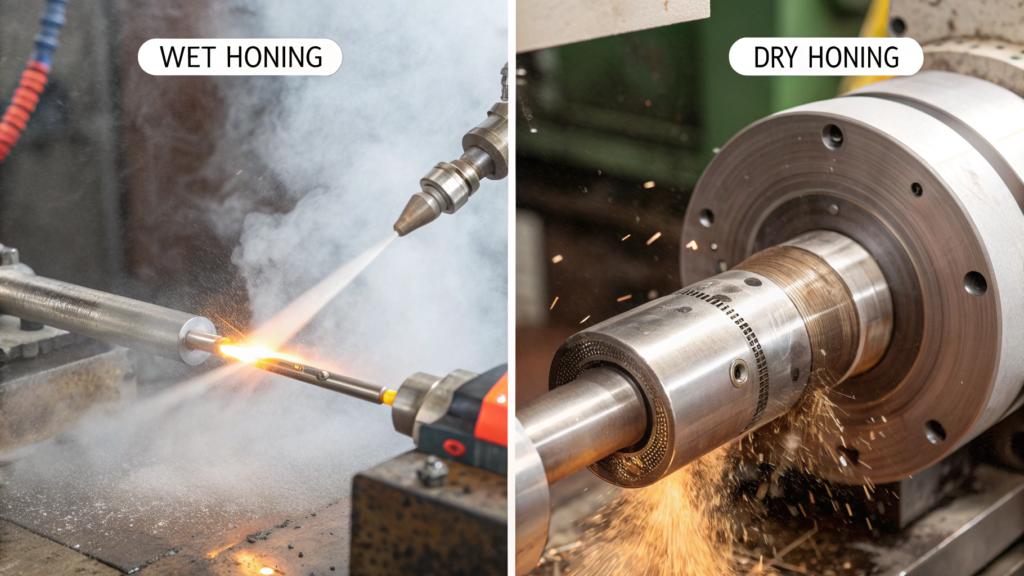
Technically, yes—but it’s not recommended.
If you install new rings without honing:
Even if the cylinder appears smooth, microscopic glazing or irregularities will prevent a good seal. Honing ensures that new rings break in correctly, improving both power output and engine longevity.
Honing and boring serve different purposes.
Boring is necessary if a cylinder is out of round or has deep scoring. But for most rebuilds, honing is sufficient.
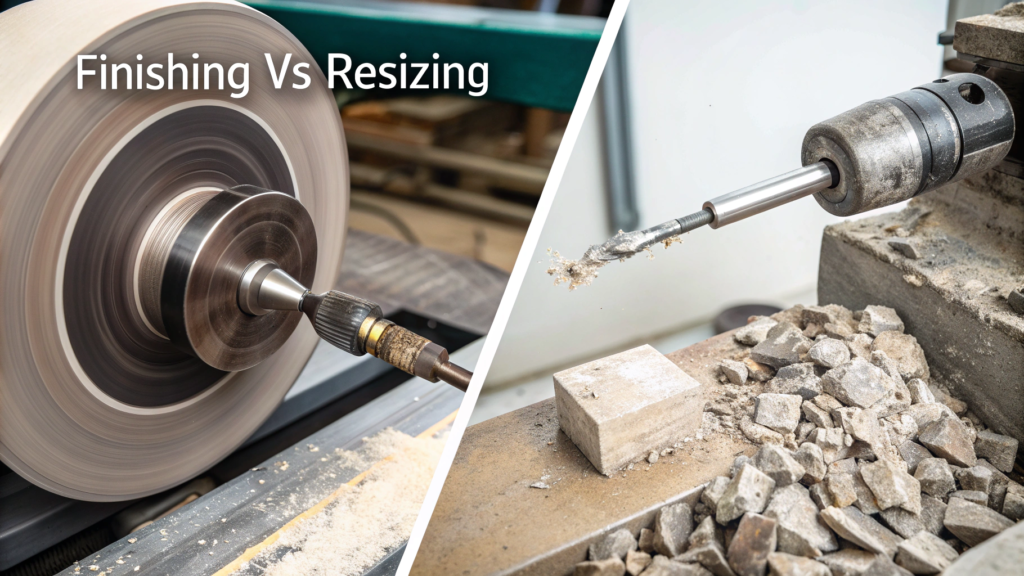
Heavy-duty engines in excavators, loaders, marine vessels, and agricultural machinery run under extreme conditions. Over time, cylinders lose their finish due to high heat, pressure, and constant friction.
Proper honing:
That’s why at Fixomech, we emphasize precision cylinder honing as part of our engine overhaul process.
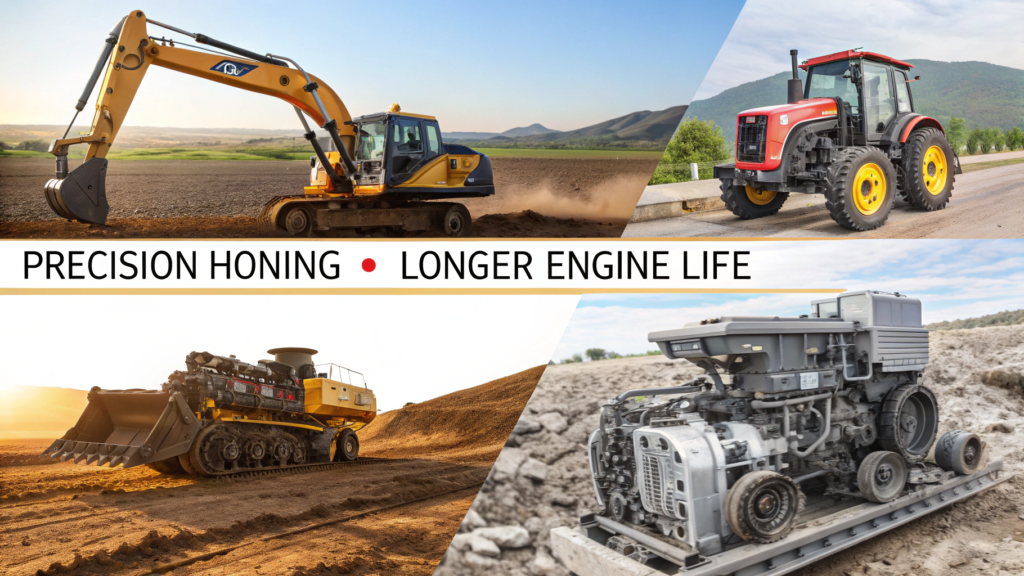
Honing removes only a small amount of material—typically microns—and doesn’t significantly increase the cylinder size.
However, repeated honing over time without boring may eventually result in an oversized piston. That’s why honing is often used as a final preparation step before ring installation, not as a method to resize the bore.
Fixomech provides advanced cylinder honing tools and custom service benches for a wide range of industries. Whether you’re servicing hydraulic cylinders in mining equipment or rebuilding marine engines, we offer:
Our solutions are trusted by professionals across construction, agriculture, oil and gas, and marine industries. With rugged, high-performance equipment, we help ensure your machines deliver maximum reliability in the field.
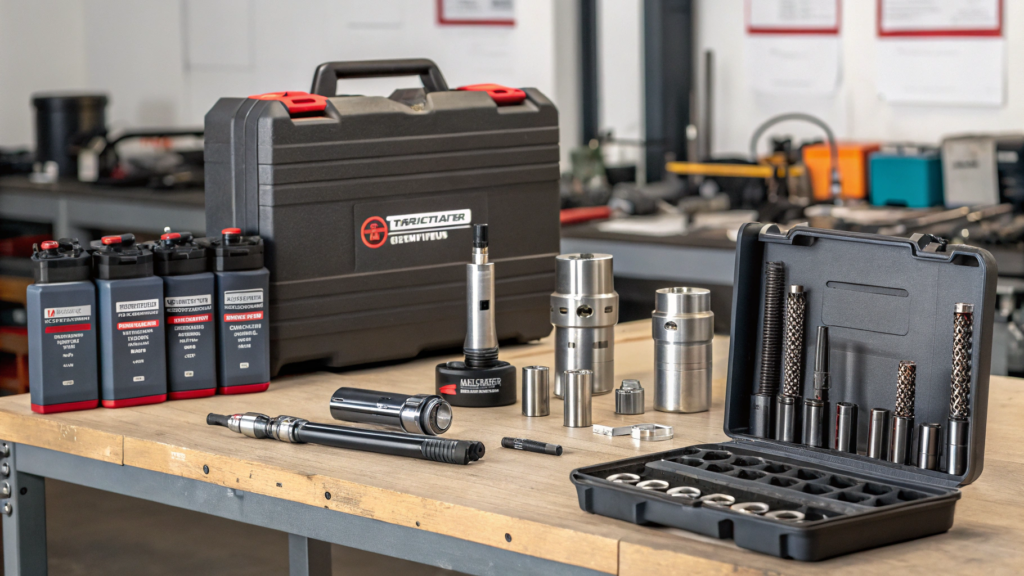
Cylinder honing is essential for any engine rebuild or maintenance process. It ensures the correct finish for piston rings to seat and seal, improving engine efficiency and preventing future damage.
If you’re rebuilding an engine or replacing rings, don’t skip the honing step. It may seem small, but it plays a big role in your engine’s health.
Looking for professional honing tools and expert guidance? Fixomech is your partner in precision.Explore our complete range of service tooling today.